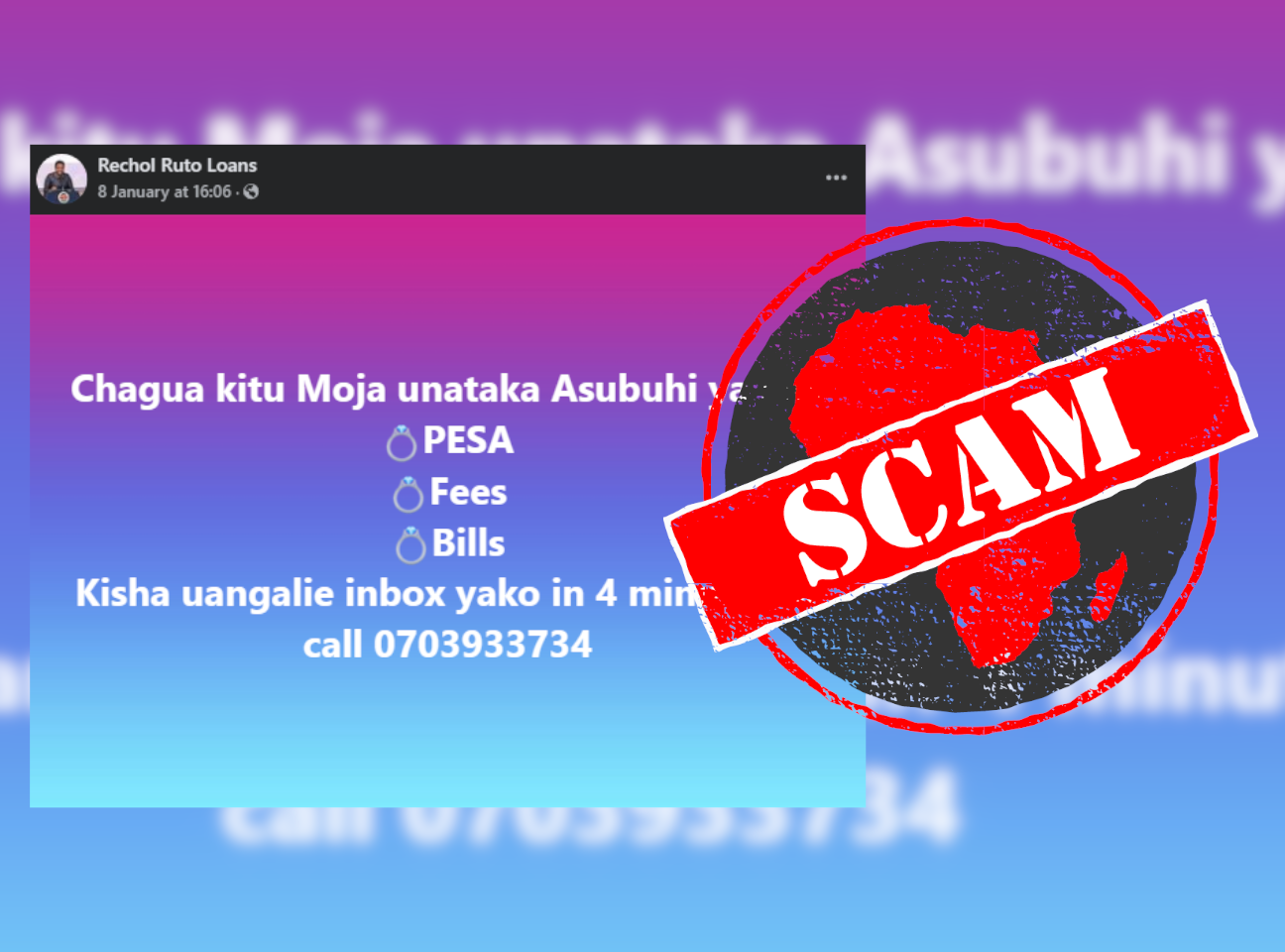IN SHORT: This Facebook account claiming to belong to Rachel Ruto, Kenya’s first lady, is advertising loans to the public. But be warned, it is probably trying to scam you.
The Facebook account Rechol Ruto Loans claims to offer loans to Kenyans. It uses the name and photos of Rachel Ruto, Kenya’s first lady.
The account, with 4,900 friends, has several active posts promising loans. These were also published in a public group with 13,400 members, further increasing their reach.
One of the posts reads: “Chagua kitu Moja unataka Asubuhi ya leo. PESA Fees Bills Kisha uangalie inbox yako in 4 minutes or call 0703933734.”
This translates to: “Choose one thing you want this morning. Money, fees, bills, then check your inbox in 4 minutes or call 0703933734.”
But is this all above board? We checked.

Ignore fake account
Ruto's official Facebook page shows no similar ads.
While the first post on the “Rechol Ruto Loans” account appears to have been published on 19 November 2023, the first lady’s official Facebook page has been active since 2013. Ruto’s page is verified, but the one offering the loans is not.
The account in question also features cover photo updates from various people other than the first lady.
It seems unlikely that Ruto would have two Facebook accounts and use one to lend money to people.
The account's requests for users to engage privately by sending a message could be an attempt to scam people.
Africa Check has previously exposed several Facebook accounts falsely claiming to offer cash and loans in the name of Kenya’s first lady.
To protect yourself, read our guide to Facebook scams and how to spot them.
Republish our content for free
For publishers: what to do if your post is rated false
A fact-checker has rated your Facebook or Instagram post as “false”, “altered”, “partly false” or “missing context”. This could have serious consequences. What do you do?
Click on our guide for the steps you should follow.
Publishers guideAfrica Check teams up with Facebook
Africa Check is a partner in Meta's third-party fact-checking programme to help stop the spread of false information on social media.
The content we rate as “false” will be downgraded on Facebook and Instagram. This means fewer people will see it.
You can also help identify false information on Facebook. This guide explains how.




Add new comment